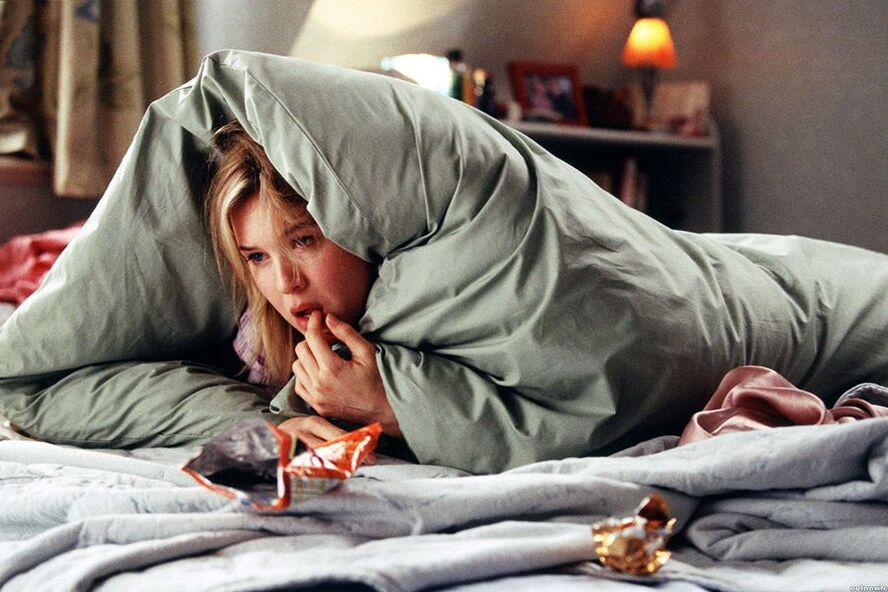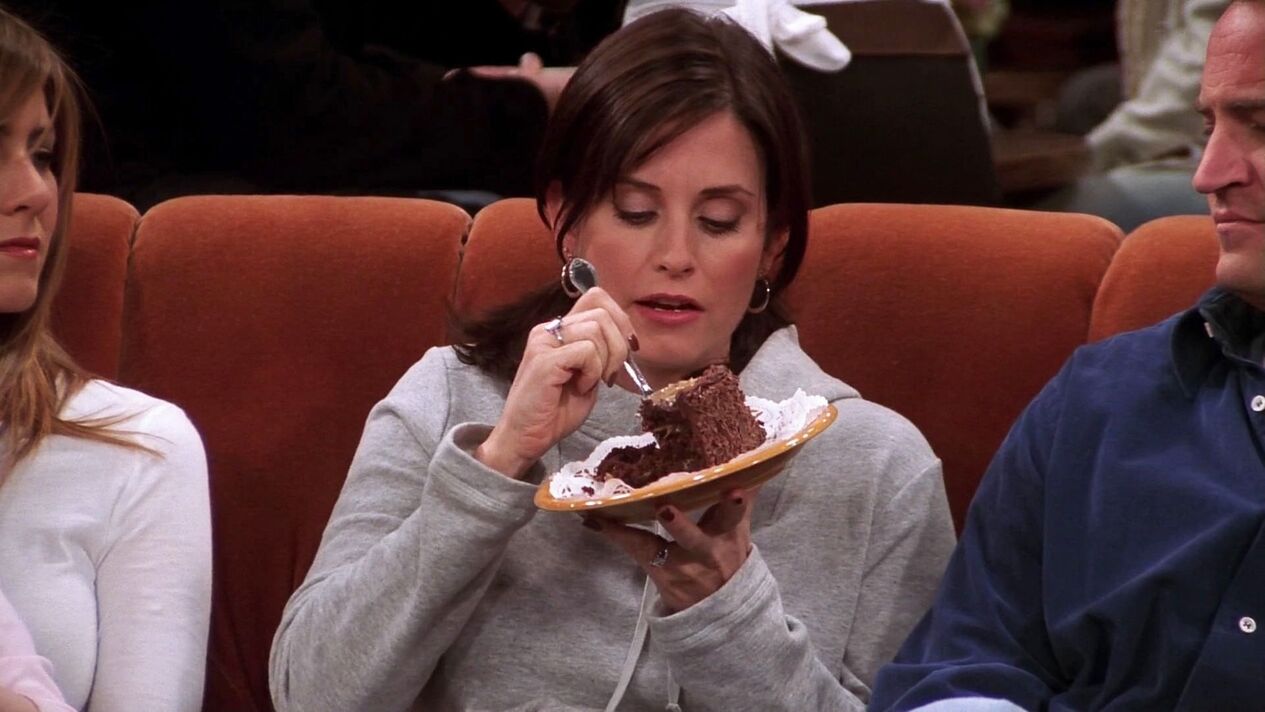
The title contains a popular query in search engines. But this article will not offer tips like "count to 10 and drink a glass of water". Let's talk about something else: why forcing yourself not to eat for weight loss is a bad idea and how to deal with your attitude towards food.
What's wrong with not eating for weight loss?
Practitioner psychologist: If you have a healthy attitude towards diet, then you are in contact with your body - you hear its signals and you know how to negotiate with it. If the body signals hunger, you satisfy it; satiety, you stop eating. The message "do not eat to lose weight" indicates the cessation of this contact, confrontation with yourself and the manifestation of self-aggression. It turns out that in order to achieve the goal (weight loss), you take action against yourself. This is not goodTHEdull and unhealthyTHEin.
Psychiatrist: Most people who have lost weight as a result of a restrictive diet regain it within 1-2 years. In addition, 2/3 of them gain more than they lost.
Endocrinologist:The message to force yourself not to eat to lose weight is absurd. It is important to understand: what happens in the body? Maybe it is not about improper diet, but about hormonal characteristics.
And what is this - a healthy attitude towards food?
Psychiatrist: It is when regular meals and snacks are not accompanied by stress, shame and guilt. Lack of "forbidden foods", diet and calorie counting. And when you allow yourself to enjoy the food.
Endocrinologist:It is about treating food as a prerequisite for a satisfying, happy life. And not as a substitute for joy and enjoyment.
Practitioner psychologist: It is when you eat from hunger, stop when you are full, do not focus on the shortcomings of your body, which must be "corrected" by eating or refusing it, when you do not eat too much, do not seize the emotions.
Can you give him more details? How and why do we eat emotions?
Practitioner psychologist: There are no good and bad feelings for the psyche, it can cope with any. You do not need food, alcohol, gadgets or TV for this. But there are cases when a person suffocated his emotions with food. Upset, I ate a bowl of ice cream - it got easier. His behavior received positive reinforcement and the person started resorting to this strategy again and again.
Counselor psychologist:Often, people overeat because they lack rest. Let me give you an example. A young woman had a problem: she eats a lot at night and can not stop herself. It turned out that he works for three, because he does not know how to deny colleagues. There is no time to bite into something: work all the time. And at night he can not eat. That is, a person exhausts himself, is overworked, is constantly stressed. How to replenish lost energy? Burger, potatoes, chocolate.
It turns out that if a person eats when they are bored, anxious, angry, tired or sad, is it wrong?
Counselor psychologist:In itself, this is neither good nor bad: food is unconsciously associated with safety. For a newborn, food is not just food, but intimacy with mom, calm, self-confidence, acceptance, love, communication. Adults also sometimes eat to calm down. It's bad when it's the only way to deal with stress or fear.
Psychiatrist: With food we satisfy different psychological needs. For example, having dinner with your family is intimacy. Going out to a restaurant with friends closes the need for social interaction. The problem arises when food becomes a crutch for our negative experiences. This brings us to the issue of eating disorder (EID) or eating disorder. Psychiatry deals with these problems.
Wait wait! It turns out that if I ate a bar of chocolate after an hour and felt guilty - is it already a disorder? Should I go straight to the psychiatrist?

Practitioner psychologist:A complex issue. There are times when a person eats while running, chaotically, not paying attention to what he eats. Or he eats when he is not really hungry - out of boredom or for company. It may just be an eating disorder that can be corrected by a nutritionist. But, at the same time, eating out of hunger is one of the symptoms of RIP. The line is very thin. And only a doctor can fix it. In our country, a psychiatrist deals with this.
Endocrinologist:It happens that a person is constantly sad, anxious, tired - and occupies these problems. Maybe this is a result of constant stress. But they are also symptoms of endogenous depression and anxiety. A psychiatrist is also involved in the diagnosis of such conditions.
But is not ERP - Bulimia and Anorexia? The symptoms are difficult to confuse
Psychiatrist: It's not just bulimia and anorexia. Eating disorders also include psychogenic overeating (also called paroxysmal or obsessive-compulsive disorder), eating inedible food (Pick disease) and psychogenic loss of appetite. These are disorders included in the International Classification of Diseases (ICD). However, there are disorders that are not included in this list, but also attract the attention of psychiatry: selective eating disorder, orthorexia (when the desire for a healthy lifestyle exceeds all limits) and pregorexia (the strictest restrictive diet in pregnant women).
Practitioner psychologistPsychology also distinguishes between overeating syndrome (BOE): when a person eats almost nothing all day, can not sleep for long or often wakes up and, waking up, goes to the refrigerator.
Is obesity also ERP?
Psychiatrist: It is not always. There can be many reasons - these are genetics, sedentary lifestyle and hormonal disorders. RPP cannot be equated with obesity.
Practitioner psychologist: Yes I agree. There are people with perfectly healthy eating behaviors who are obese. And vice versa - for example, patients with anorexia nervosa.
Have you heard that the RPP problem mainly affects women, teens and models? Is true?

Psychiatrist:Of course not. The disorder can develop at any age in both men and women. For example, selective eating disorder is more common in children - the child eats only certain foods.
Practitioner psychologist: Anorexia and bulimia are more common in women. But forced overeating - equally in men and women. Therefore, it is impossible to say that RPP is a purely female problem. And yes, teenagers, models, athletes involved in aesthetic sports (rhythmic gymnastics, figure skating, athletic dance), TV presenters, bloggers, actors - everyone at stake and whose work depends on appearance are at risk. But the problem can be overcome by anyone, including those who are far removed from modeling or beauty blogging.
It is believed that any eating problems are an attempt to attract attention. This is true?
Practitioner psychologist: There is such a view, but it is not scientifically substantiated. Yes, during treatment, it may turn out that the RPP started when the person was not accepted by their peers. For example, for a 13-15 year old girl, it is important that the boys look at her and her friends approve of her and so she went on a strict diet. It also happens that the problems with the food are the child's attempt to attract the parents' attention, often unconsciously. But these are rather special cases. It is a mistake to think that the need for attention is the root cause of eating disorders.
So what is the reason?
Practitioner psychologist: There are three groups of reasons: biological, psychological and social. Biological - for example, a genetic predisposition to RPCs - unfortunately, can be inherited. Psychological - domestic violence, ban on expressing negative emotions, violation of parent-child attachment (for example, if the child has cold, distant parents). Social - the worship of the ideals of beauty, of impossibility, of intimidation.
PsychiatristA: There are certain personality traits that can contribute to the development of EID, such as perfectionism or responsibility. The peculiarities of the eating behavior in the family, the attitude towards the weight and the silhouette also affect. The child could be rewarded with sweets for good behavior and study and that stuck: since I'm good, you can get some candy. Very well? I will take ten.
Counselor psychologist:Many ECD patients have been physically or sexually abused. Also, for many, food helps to reap side effects from the condition. For example, one of my clients needed weight to protect herself from men. During treatment, we discovered that at school age the girl found herself in an unpleasant situation with an adult man. The client was surprised to remember: this story seemed "forgotten", but continued to influence the girl's behavior in adulthood. They also revealed the belief that men love only the weak. If so, the extra pounds helped her "be safe", that is, without men.
How common are eating disorders in society?

Psychiatrist: It is believed that the prevalence of RPC in the world is about 9%. In risk groups, the prevalence is higher. There are studies in adolescent girls that report that by the age of 20, about 13% have CRP symptoms. Anorexia is one of the deadliest mental disorders, just ahead of the chemical addiction.
Practitioner psychologist: It is difficult to give exact numbers, because people with PAD often do not understand at all that they need help. There are numbers for the United States, as it is a center for research and statistics on eating disorders: there are about 30 million people living with eating disorders. Women are twice as many as men (20 million versus 10 million). And every hour in the world at least 1 person dies from the effects of RPE.
What are the symptoms of RPE? Can I diagnose it myself?
Psychiatrist: In general, the main symptoms are:
- A person makes himself vomit after eating or compensates for what he has eaten in other ways, for example, excessive physical exertion (physical tyranny), laxatives and diuretics.
- Strong focus on weight and figure (you can not add / lose a single gram or centimeter! ).
- Numerous weight and weight loss efforts are fluctuating.
- Many different rules in the diet (I eat only protein, only vegetable, only red).
- Constant thoughts, fears and feelings of guilt and shame related to food intake and body weight. When thoughts and behaviors related to food bring a lot of suffering.
- Loss of control of the amount consumed.
But many can have such symptoms to varying degrees. Is there a more accurate diagnosis?
Endocrinologist:RPD is a systemic chronic disease. It causes metabolic changes in systems and organs, changes in human neurochemical regulation. This is a complex problem that can manifest itself in nerves, organic pathologies of the brain, organic lesions and depressive disorders.
But first you need to determine the cause of the symptoms. For example, if a person runs in the fridge at night, you need to know your glycogen level to rule out insulin resistance and type 2 diabetes.
What if you find out that you or your loved one has RPP?
Practitioner psychologist: If you have - consult a psychiatrist for a diagnosis. If you suspect an RPP on a loved one, it's more difficult: he often refuses, does not want to admit that something is wrong with him. And unnecessary pressure can break trust. Let your loved one know that you are on their side, ready to help and support.
Who treats ECD? Only a psychiatrist?
Psychiatrist: Not. A psychiatrist makes a diagnosis. And he treats, depending on the disease, psychiatrist, psychotherapist, clinical psychologist (as prescribed by a psychotherapist). Why is it so important to see a psychiatrist right away? Because it can reveal comorbid conditions such as depression or anxiety disorder, which occur in about 80% of cases in people with RPD. Treatment depends on the severity of the disease. It can be drug therapy in combination with psychotherapy (group, cognitive-behavioral, dialectical behavioral). Family therapy is also recommended.
Counselor psychologist:Anorexia and bulimia are mainly treated by a psychiatrist. Emotional overeating - psychologist, counseling psychologist. Obesity - Nutritionist-Endocrinologist (you should check the hormones, if the metabolism is disturbed) together with a psychologist or psychotherapists.














































































